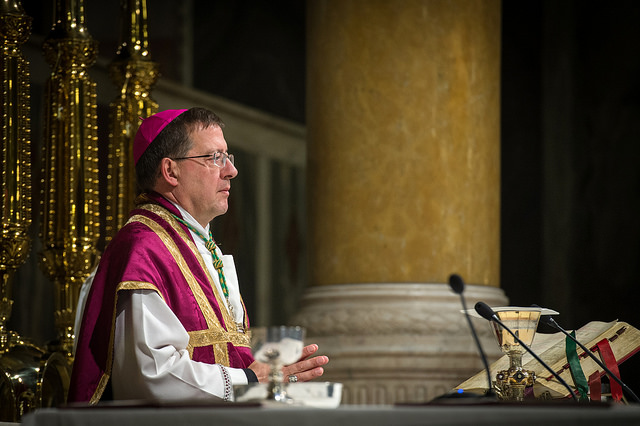Abortion statistics released by the Department for Health on 11th June 2020 show that, in England and Wales, there was a total of 209,519 abortions in 2019, an increase of 2% from 2018 when there were 205,295 abortions.
The highest number of abortions ever was recorded for English and Welsh residents, with 207,384 abortions for English and Welsh residents, an increase of 6,776 since 2018.
The statistics also show that there were 3,183 disability-selective abortions in 2019. This represents a 53% increase compared to ten years ago in 2009 when there were 2,085.
656 babies with Down’s syndrome were aborted in 2019.
Bishop John Sherrington, lead Catholic bishop for life issues, said: 'These abortion statistics continue to present an increasing and terrible human tragedy. Loss of life of this magnitude is shocking and distressing. The mission of the Church and all who share our views continues to be to promote a culture of life centred on the dignity of every human life at all stages and in every condition, to support pregnant women, and to pray for those lives lost due to abortion and the women and men who live with the emotional and spiritual scars of abortion.
‘Why then, when we are clearly committed to the principles of love and care for the most vulnerable in society as has been shown during the COVID-19 pandemic, does English and Welsh law still permit abortion up to birth of children with disabilities? Six hundred and fifty-six babies with Down’s syndrome were aborted in 2019, others following diagnosis of minor conditions such as cleft lip, cleft palate, and clubfoot.
‘Why are women living in the most deprived areas more than twice as likely to have an abortion than those living in the least deprived areas? The lack of support for poorer pregnant women is a failure of care, duty, and love, and this needs to change.
‘Current abortion legislation needs urgent revision, especially to end discrimination against the disabled, lower the time limit under which abortions are currently allowed, and put a stop to sex-selective abortion. Women with unplanned pregnancies and those who have received a diagnosis that their unborn child has a disability require far more support from the Government, the medical profession, and health and social care services in the community.
‘The Catholic Church plays its part in providing support.
‘Each year, the Catholic Church celebrates the Day for Life. This year, our theme is “Choose Life”, which focuses particularly on the protection of unborn children, and care and support for pregnant women. Prayer, the raising of awareness, the desire to change hearts and minds as well as a collection for pro-life work are part of this initiative.’
This year, the Day for Life received the following blessing from the Holy Father:
‘His Holiness Pope Francis sends prayerful good wishes for the celebration of the 2020 Day for Life in England and Wales, Scotland and Ireland. The theme ‘Choose Life’ is particularly fitting in this twenty-fifth anniversary year of Saint John Paul II’s Encyclical Evangelium Vitae, which summoned the entire Church to be “a people of life and for life” (EV 78). In these days when our world faces the challenges of the coronavirus pandemic, the Holy Father asks the faithful to pray for all those families, volunteers and healthcare professionals committed, often heroically, to the care and healing of the suffering, and for all those who, amid the continuing “pandemic” of poverty and war, work to uphold the God-given value and dignity of every human person. It is his hope that amid the present crisis all will be led to a greater appreciation of the moral imperative to build a “culture of life” marked by ever greater concern for nurturing, protecting and promoting the integral welfare of all God’s children, beginning with the most vulnerable. With these sentiments, the Holy Father gives the assurance of his closeness in prayer and cordially imparts his Apostolic Blessing as a pledge of joy and peace in the Lord.’
Bishop John added: ‘We must now strengthen our resolve to foster a culture of welcome and acceptance of new life, and to pray and work for better legal protections for pregnant women and the child in the womb.’




